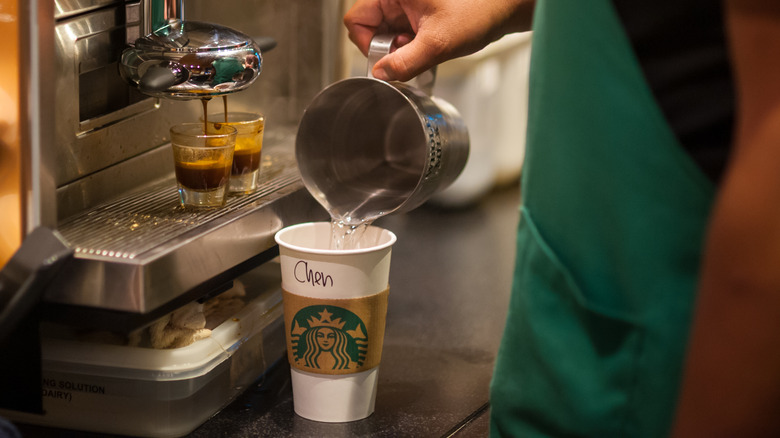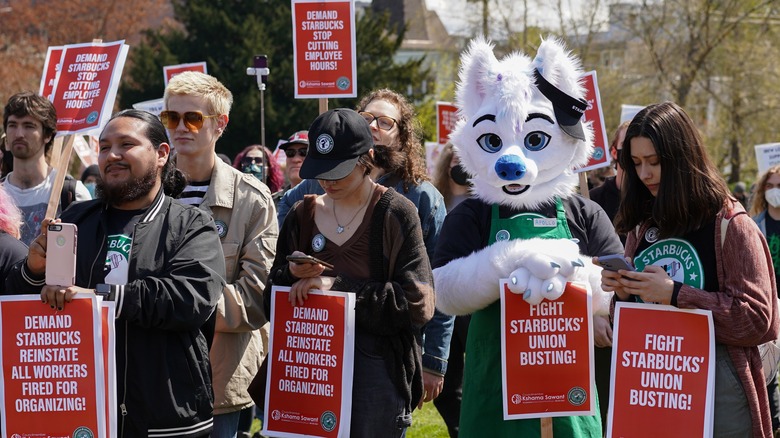Why Starbucks Is Raising The Pay For Only Some Of Its Employees
When Starbucks' interim CEO Howard Schulz returned to helm the company he nurtured for a third time, he had something to share with employees. "I have realized there have been many short term decisions that have had an adverse [effect]. We are going to reverse that," he said, per Reuters, adding that the company was on track to "make promises that we will keep, promises that are real and going to solve the problems that exist in your stores."
So it perhaps comes as no surprise the coffee chain recently announced plans to begin offering its employees a base pay of $15 an hour, with increases that apply to all store partners with rewards for tenure. Starbucks also shared news about increasing training and investing in store innovation. All in all, the total investment is expected to cost the company nearly $1 billion. The plans, which were announced during a May 3 earnings call, are designed to allow Starbucks to "deliver an elevated experience" while improving working conditions. The announcement tracks hints about potential employee raises Schultz made to store leaders in mid-April, per CNBC.
But while it appears to be all good news for Starbucks employees, there is a catch — the new benefits will only apply to some.
Starbucks won't be offering extra benefits to stores that choose to unionize
Starbucks has made good on earlier hints that improved employee benefits would exclude unionized stores, claiming in a statement announcing the news it does not have the right to make any changes in stores that have unionized or are currently in the process of doing so. Instead, the chain said it would "provide wage increases that were announced in October 2021 and will otherwise comply with all applicable legal requirements." When he first raised the initiative in April, Schultz said that the benefits were meant to reduce attrition among the chain's workers, per The Wall Street Journal.
The Journal explains Schultz does have a legal leg to stand on, because federal law calls for pay and benefits involving unionized workers to be negotiated separately and does not allow companies to make changes to contracts independently. But as CNBC points out, companies are within their rights to offer unionized employees additional or improved benefits, as the airline industry often does. Experts like Cathy Creighton, who once worked as an attorney for the National Labor Relations Board, called the move a "union avoidance technique."
Schultz has repeatedly said that he is not against forming unions but, per CNBC, the interim CEO's book shows otherwise. "I was convinced that under my leadership, employees would come to realize that I would listen to their concerns. If they had faith in me and my motives, they wouldn't need a union," he wrote in 1997.
Reuters points out the general attitude towards unions may be changing at Starbucks, despite Shultz and other executives' uncooperative stance. A group of Starbucks investors recently asked the company to adopt a more neutral position when it comes to organized labor.

